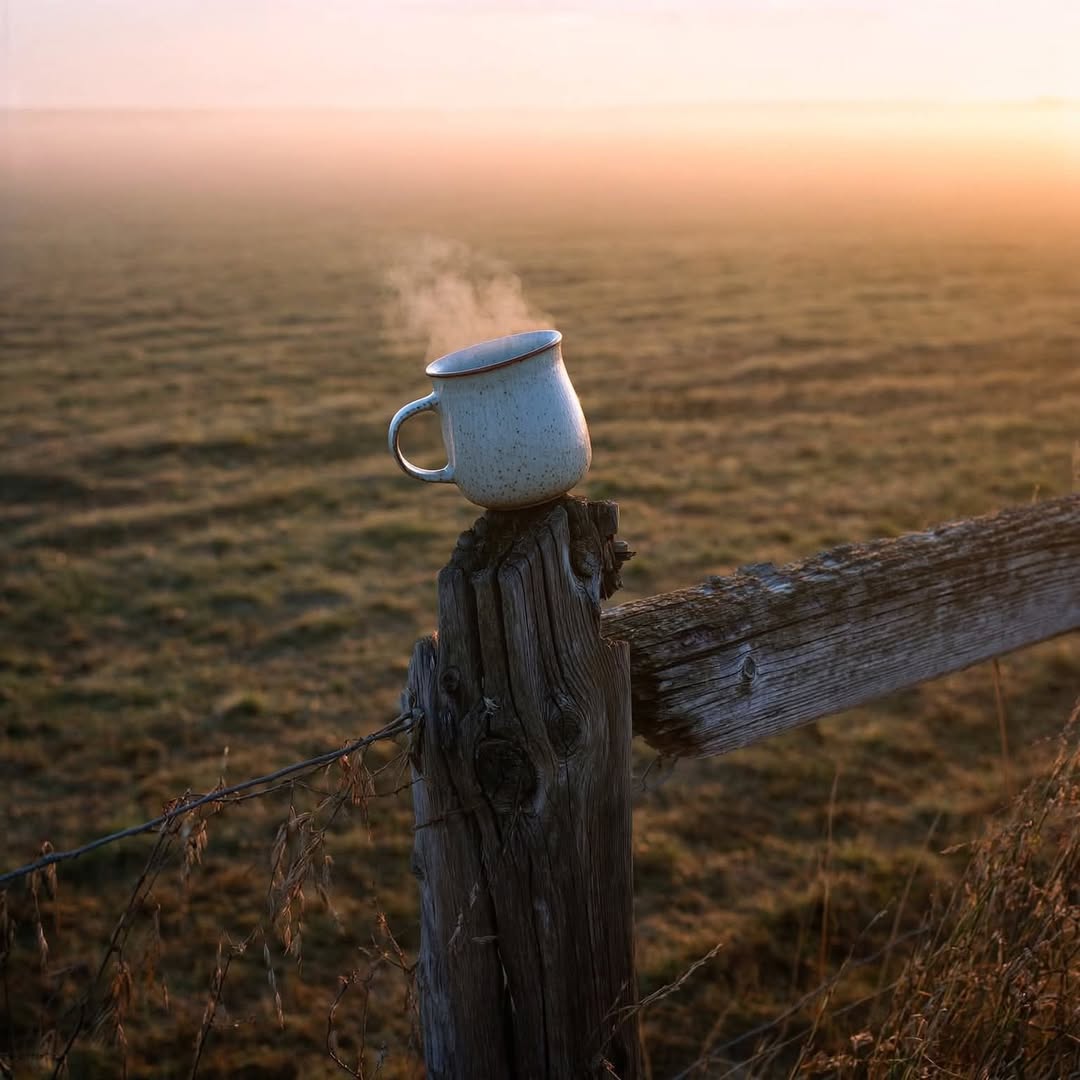It was on the old Miller property, a vast stretch of farmland that had been left to go wild. Right in the middle of the longest, loneliest stretch of fence, there was a single post where a mug would appear. Not always. Only on the days you needed it most.
The rules were passed down like folklore:
You never looked for it. You’d never find it that way.
If you saw it, it was for you.
You drank it right there, standing up.
You never, ever took the mug.
I was seventeen the first time I saw it. My world had just ended—as it does when you’re seventeen. My first love had shattered my heart, my best friends had chosen sides, and I felt like a raw nerve. I’d gone for a walk to try and outwalk the pain, trudging along the edge of the Miller land with my head down, kicking at stones.
When I looked up, there it was.
A simple, off-white porcelain mug, chipped on the handle. Steam curled from the top into the cold morning air.
My breath caught. It was real.
I walked over, my heart thumping. I was half-convinced it was a prank. I looked around. There was no one for miles. Just the wind in the tall grass.
Hesitantly, I wrapped my hands around the mug. It was blissfully warm. I brought it to my lips and sipped.
It was hot chocolate. But not just any hot chocolate. It tasted like my grandmother’s kitchen. Like safety. Like being six years old and knowing, truly knowing, that everything was going to be okay. It was so rich, and deep, and kind, that the tight knot of tears in my chest finally loosened, and I cried, right there by the fence post.
I drank it all. The warmth spread through my whole body, a comfort I hadn’t known I was capable of feeling. I placed the empty mug back on the post, a silent “thank you” to the empty field, and walked home. The grief was still there, but it was no longer a monster. It was just a sad song I could finally bear to listen to.
That was twenty years ago.
I’ve seen the mug two other times since then. Once, the day after I was laid off from my job. The drink was a strong, black tea that tasted like resolve and clear-mindedness. It gave me the courage to start planning.
The second time was the morning of my father’s funeral. That day, the mug held a simple broth. It tasted like warmth and strength, like a hand on my shoulder, and it steadied me for the long day ahead.
I never saw who put it there. No one ever does. Old Man Miller has been dead for decades. Some kids in town swear it’s his ghost, still watching over the land and the people who walk it. Others say the land itself is kind, and the mug is its way of offering comfort.
I don’t know who or what does it. And I don’t need to know.
Last week, I was driving home just before dawn after a long, stressful night shift. On a whim, I pulled over and decided to walk the fence line. The sky was turning pink, and the world was quiet.
And then I saw her. A young woman, maybe twenty, sitting on the ground, her knees pulled to her chest, her shoulders shaking with silent sobs. She was staring at a phone, the screen cracked.
My heart ached for her. I knew that kind of hurt.
I was about to call out, to ask if she was okay, when I stopped myself. I remembered the rules. I wasn’t the one who was supposed to help her. Not directly.
I turned and walked quietly back to my car. I opened the trunk, where I keep an old picnic basket. Inside that basket, wrapped in a towel, was a thermos of tea I’d made for my shift, and a simple, off-white porcelain mug, chipped on the handle.
I filled the mug, the steam rising in the cool air. I didn’t approach her. I just walked to the fence post—the fence post—and I placed it there.
Then I turned and walked away, without a word, without looking back.
I got in my car and drove off, watching in my rearview mirror. I saw her look up. She wiped her eyes, stared at the mug for a long moment, and then, slowly, she stood up and walked toward it.
She’ll never know it was me. And that’s the whole point.
The kindness isn’t from a person. It’s from the world. And sometimes, we just get to be the hands that deliver it.
